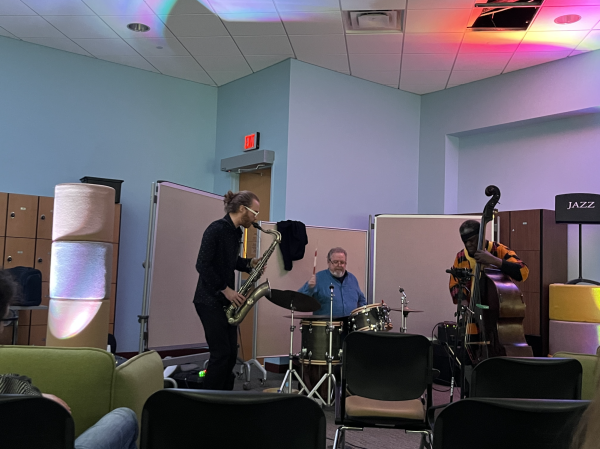BlackStar: Best of the Fest 2018
After watching seven of the films from this year’s BlackStar Film Festival, also known as “Black Sundance,” I highly recommend seeking them out. Since 2012, the BlackStar Film Festival has celebrated the traditions of African culture, presenting films by black and brown filmmakers from around the world. Curated by Maori Holmes, founder of BlackStar Film Festival, Colgate showcased some of the most captivating works from the 2018 edition, offering the audience an enormous variety of films on Friday, November 30.
The first film, “Birth of Afrobeat,” directed by Opiyo Okeyo, gave a short, seven-minute taste of music in African culture. In the movie, Nigerian drummer Tony Allen recounts his creation of Afrobeat music, a mix of highlife jazz and high hats.
The film that came next, “Happy Birthday Marsha!” directed by Tourmaline and Sasha Wortzel, was a flashback to the life of transgender artist and activist Marsha Johnson. The film is set in New York City, 1969, just hours before the Stonewall Riots. Throughout the film, there are examples of police corruption, yet the film is based on a day in the life of Marsha. It is not until the end that the audience understands the true meaning of the film and the power of activism.
The third film gave off an unnerving yet humorous vibe. “Hair Wolf,” directed by Mariama Diallo, takes place in a black hair salon in Brooklyn where the employees fend off local white people attempting to immerse themselves in black culture, exemplified by a white girl asking for braids and a white boy asking for a fade. The film depicts the stereotypical white girl taking selfies and talking about her photos going viral. The employees seem to fall under some type of spell because of the white woman’s presence, claiming that “they want everything we got except the skin off our backs.” Although the film is meant to make the audience laugh, it conveyed a much deeper meaning.
“Where the Water Runs,” directed by Dubois Nii-Armmaah Ashong, depicted the story of Nasir, a water distribution truck driver for the Los Angeles Department of Water and Power during the worst drought in LA history. We are given insight into the reality of the situation, where Nasir’s lower-class neighborhood can barely survive, while the upper-class white neighborhoods do not even seem to attempt to conserve water. A strong image of lower-class people scooping ice up from the ground outside of a restaurant contrasts with a shot of a white man using a hose to wash his fancy car. With a promotion up for grabs, Nasir must choose if he will continue to turn a blind eye to his company’s corruption or take a stand for his community.
The fourth film, “Rebirth is Necessary,” directed by Jenn Nkiru, portrayed a myriad of music and clips of African culture that work together to portray a connection. It uniquely depicted a strong message of African unity.
“F—– Like A Star,” directed by Stefani Saintonge, is a short, eight minute film that takes on a macro perspective toward African culture with the use of braiding and clothing, but incorporates the viewer, using the perspective of a soldier ant. Saintonge came to the event and spoke to the audience after- wards, talking about how she wanted to show the connection between ant labor and gender
labor. The title, poignant and provocative, comes from a paragraph in Toni Morrison’s novel, “Tar Baby.”
The final film was created by director Darius Clark Monroe, and he also spoke to the audience after the event. “Black 14” used media coverage to represent the 1969 racial protest at the University of Wyoming.
“Time diminishes the reality of an event,” Monroe said. He wanted to make sure his clips were from the time period of occurrence, rather than years later. When asked about the parallels with Colin Kaepernick’s kneeling, he said that he wants to remind people that controversy like this is not timely, it is continuous.
“It was spoken about before Kaepernick was even born,” Monroe said.
The films from Blackstar portray some of the different perspectives of African Americans, and the curator Holmes stated that they are “just a sample of the voices that are out there.”
Contact Jessica Argento at jargento@colgate.edu.
Jessica Argento is a senior from Westchester, NY concentrating in international relations and minoring in economics and sociology. She has previously served...







